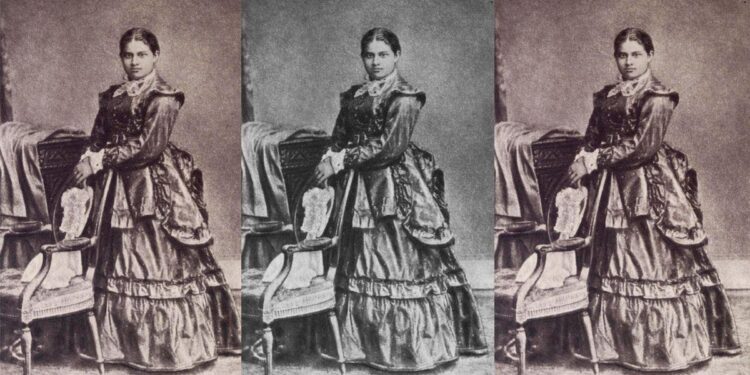Who are the Dutt family in Indian English literature
Who are the Dutt family in Indian English literature-Who are the Dutt brothers?,Is Toru Dutt an Indian poet?,Who is the brother and sister of Toru Dutt?,The Dutt family holds a distinguished place in Indian English literature, primarily due to the noteworthy contributions of two significant figures: Michael Madhusudan Dutt and Toru Dutt. These literary luminaries have left an indelible mark on the literary landscape of India, each making a unique impact on the evolving narrative of Indian English literature during the 19th century.
Michael Madhusudan Dutt, born on January 25, 1824, in Sagardari, Bengal, was a poet and dramatist often hailed as the “Father of Bengali Sonnet.” His life and works serve as a testament to the cultural and linguistic crossroads characterizing the colonial period in India. Dutt’s early education in traditional Sanskrit and Persian texts endowed him with a profound understanding of classical literary traditions. However, his exposure to English literature during his studies at Hindu College in Calcutta sparked a passion for Western literary forms.
The commencement of Madhusudan’s literary journey can be traced back to the publication of his first book of poetry, “Is it Love?” in 1849. This work reflected the influence of Romanticism and the writings of Byron. Proficient in English, Sanskrit, and Bengali, Dutt seamlessly navigated through different literary traditions. However, his groundbreaking contribution came with the creation of the first epic poem in modern Bengali literature, “Meghnad Badh Kavya” (1861). This magnum opus, based on the Ramayana, showcased his ability to blend classical Indian themes with Western literary forms, marking a pivotal moment in the evolution of Indian literature.
Also Read-
- Raja Ram Mohan Roy contribution in the making of modern India
- Who made English language as a medium of education
- What are the problem faced by India after independence
Madhusudan Dutt’s literary prowess extended beyond poetry as he ventured into the realm of drama. His play “Sharmishtha” (1861) was a significant departure from the conventional themes prevalent in contemporary Bengali theater. Drawing inspiration from Greek mythology, the play explored complex human emotions and relationships, highlighting Madhusudan’s capacity to synthesize diverse cultural influences into a cohesive artistic expression.
Despite his significant contributions to literature, Madhusudan Dutt faced personal and financial challenges. The clash between his Indian roots and Western influences is evident in his tumultuous life. His conversion to Christianity and subsequent attempts to assimilate into British colonial society led to a sense of cultural dislocation, a theme palpable in his later works like “Buro Shaliker Ghare Ro” (1862), where he grapples with the cultural and social transformations occurring in 19th-century Bengal.
While Michael Madhusudan Dutt’s legacy lies in his pioneering efforts to create a distinct voice in Indian English literature, another luminary from the Dutt family, Toru Dutt, made invaluable contributions during the same period. Toru, born on March 4, 1856, in Rambagan, Calcutta, was a poet and novelist who, like her elder cousin Madhusudan, skillfully navigated the intricate interplay between Indian and Western literary traditions.
Toru Dutt’s literary career was tragically short-lived, as she succumbed to tuberculosis at the young age of 21. However, her impact on Indian English literature remains enduring. Toru’s early education in French and English literature, coupled with her proficiency in Sanskrit and Bengali, facilitated a unique fusion of diverse influences in her writings.
Her first published work, “A Sheaf Gleaned in French Fields” (1876), was a collection of English poems with a distinct French influence. Toru Dutt’s ability to seamlessly integrate French symbolism and Indian themes set her apart in the literary landscape. The poems in this collection, such as “Our Casuarina Tree” and “Lakshman,” captured the essence of Indian culture and landscape through the prism of Western poetic forms.
The Dutt family’s contribution to Indian English literature extends beyond individual achievements. Together, Michael Madhusudan Dutt and Toru Dutt embody the intersectionality of Indian and Western literary traditions, showcasing the richness and complexity of the cultural milieu during the 19th century. Their works exemplify the dynamic interplay between tradition and modernity, indigenous and foreign influences, which defined the literary ethos of the time.
The legacy of the Dutt family in Indian English literature is not confined solely to their individual accomplishments but also extends to the broader impact they had on shaping the trajectory of literature in colonial India. Their ability to transcend cultural boundaries and create a synthesis of diverse influences laid the groundwork for subsequent generations of writers grappling with questions of identity, representation, and cultural hybridity.













